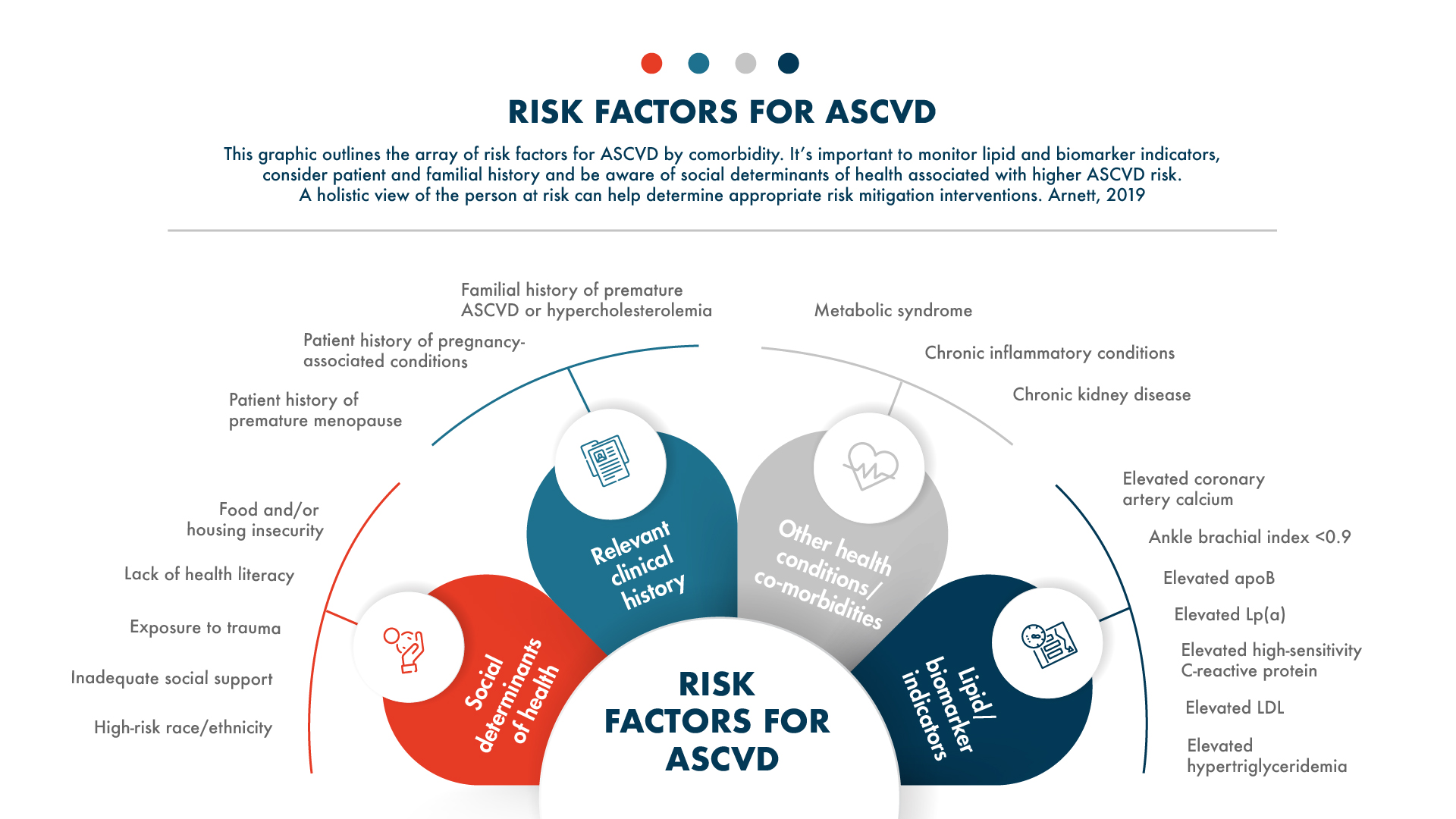Cholesterol Health Toolkit
Atherosclerotic Cardiovascular Disease (ASCVD) Background
- ASCVD is the leading cause of death in the United States and the underlying cause in about 50% of all deaths in Western societies.
- Affects an estimated 10-15% of adults over the age of 21
- One person dies every 33 seconds in the United States from Cardiovascular disease.
- Someone has a heart attack every 40 seconds in the United States.
- Racial and ethnic groups are disproportionately affected.
- Hispanics have seen an increase in mortality rate in recent years.
- African Americans are more likely to not receive a statin (preventative medication) than their white counterparts.
- South Asians have a higher risk of ASCVD than some other groups.
One key area to focus on in the fight against cardiovascular disease is high cholesterol, which is a major cause of ASCVD. Click on the links below for helpful educational materials, handouts and guides focused on cholesterol health.
Patient ResourcesHave high cholesterol?
There’s a lot of confusing information out there. Our infographic and pamphlet break down what having high cholesterol means, how to know if you are at risk, how to manage high cholesterol, and how to prepare for appointments with your provider.
Patient Handout Patient Handout (Spanish) Patient Pamphlet Patient Pamphlet (Spanish)Provider ResourcesLet’s talk about cholesterol health & ASCVD
The following resources include information about how to screen your patients for ASCVD risk, which of your patients are at increased risk, and how to empower your patients to manage their cholesterol.
Provider Handout Provider Handout (Spanish) Provider Pocket Guide Provider Pocket Guide (Spanish) Link to Risk CalculatorPopulation Health ManagementA roadmap for managing cholesterol health at the population level
Population health management can improve care for patients with high cholesterol. Health plans and health systems can use the Roadmap to educate themselves, understand current evidence-based interventions for addressing high cholesterol, and ultimately, encourage development and use of population health management strategies to improve cholesterol care.
Population Health Management RoadmapSponsorship Support

These documents is owned and copyrighted by the National Committee for Quality Assurance (NCQA), and was produced by NCQA with financial support from Novartis. NCQA does not endorse any Novartis products or services. ©2024 NCQA. All rights reserved.
